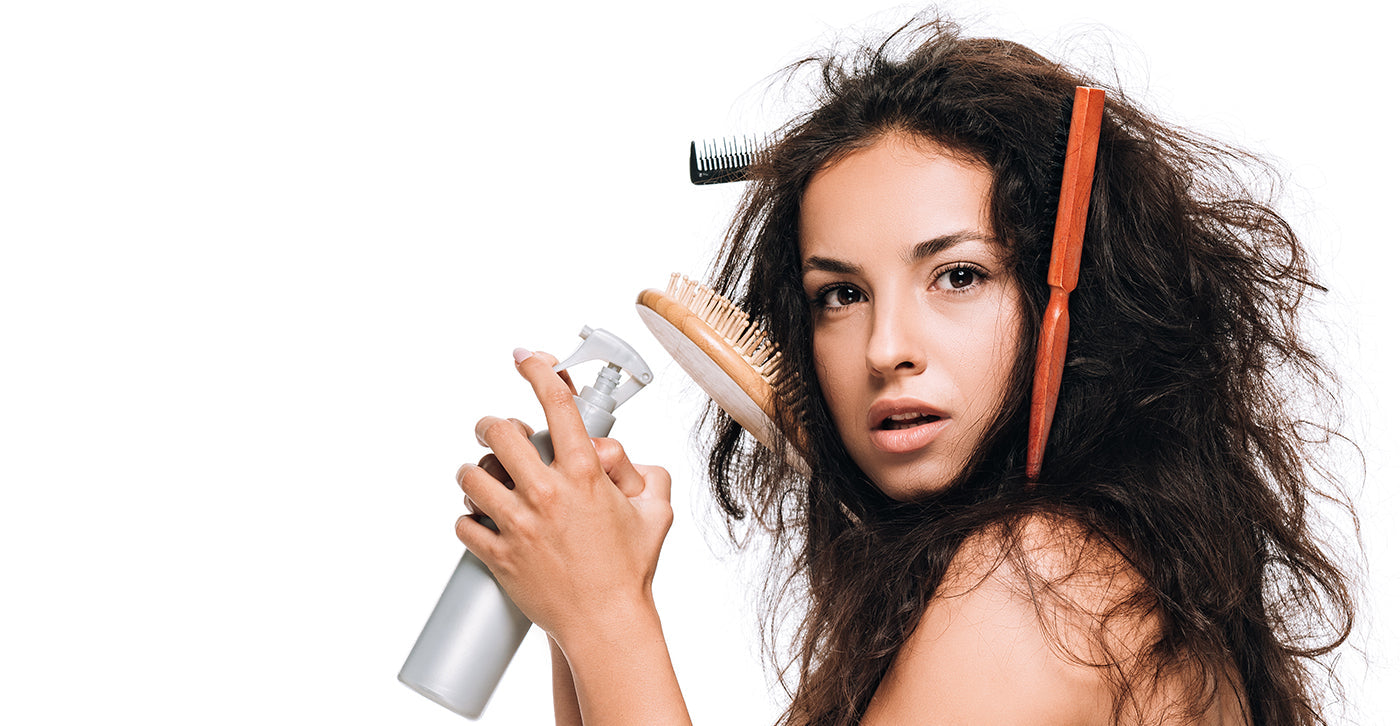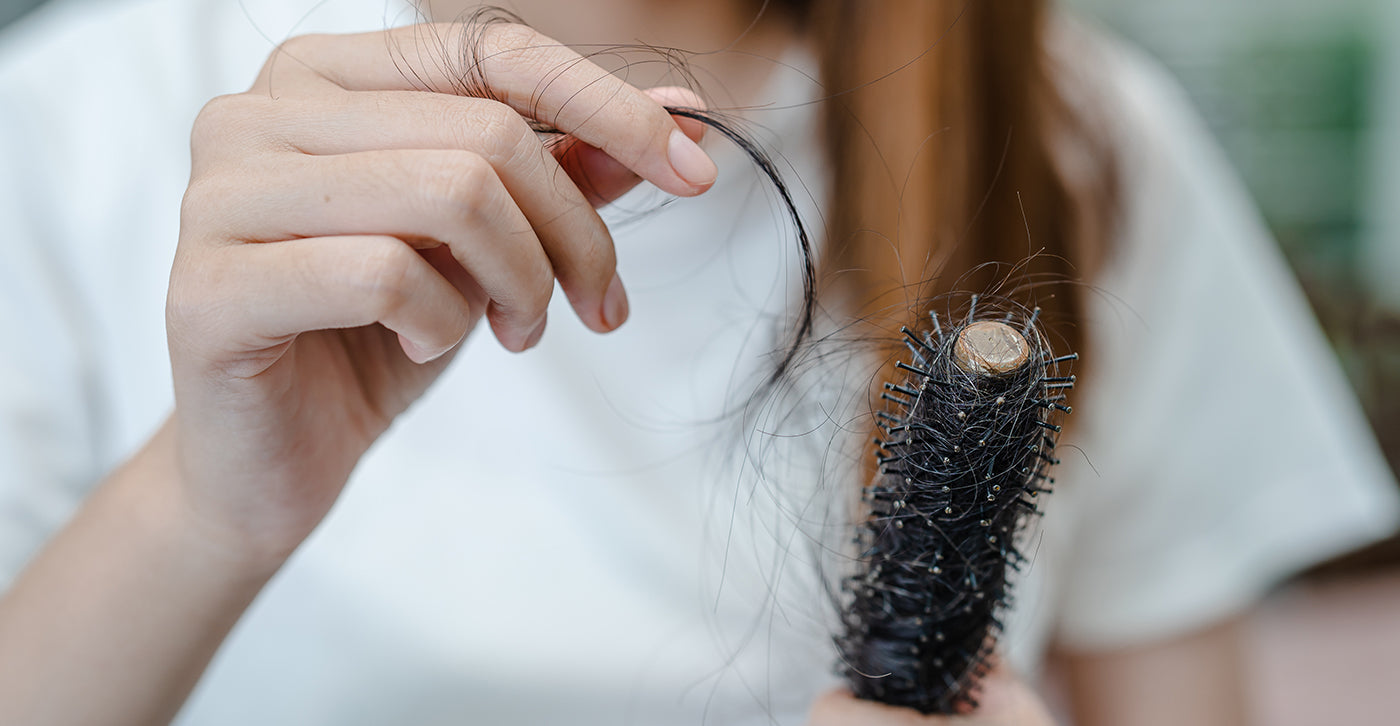When it comes to hair loss, most people immediately think of factors like genetics, stress, or improper hair care. But there’s another major culprit that is often overlooked: hormones. Hormonal changes can have a significant impact on the health and growth of your hair, and many people experience hair thinning or shedding during times of hormonal imbalance. So, what exactly is the connection between hormones and hair loss? Let's break it down.
How Hormones Affect Hair Growth
Our hair goes through a natural growth cycle with three main phases: the anagen (growth) phase, the catagen (transition) phase, and the telogen (resting) phase. Hormones play a crucial role in regulating these cycles. When hormones become imbalanced, they can alter the normal cycle of hair growth, leading to excessive shedding or thinning.
The most common hormones that affect hair health include:
- Androgens: These male hormones, which are present in both men and women, can influence hair growth. High levels of androgens can shrink hair follicles, leading to thinning hair and hair loss. This is commonly seen in women with conditions like polycystic ovary syndrome (PCOS), where elevated androgen levels cause thinning hair, especially around the crown.
- Estrogen and Progesterone: These female hormones are responsible for hair growth during pregnancy, when many women experience thicker, fuller hair. However, after childbirth or during menopause, a drop in estrogen and progesterone levels can lead to significant hair shedding. This is often referred to as postpartum hair loss or menopause-related hair thinning.
- Thyroid Hormones: The thyroid gland, which controls metabolism, can have a big impact on hair health. Hypothyroidism (an underactive thyroid) and hyperthyroidism (an overactive thyroid) both can lead to hair loss. Hypothyroidism, in particular, is known for causing thinning hair, dry scalp, and even patchy hair loss.
Common Hormonal Changes That Affect Hair Health
- Pregnancy: During pregnancy, the body produces higher levels of estrogen, which helps keep hair in the growth phase. As a result, many women notice their hair is thicker and fuller during pregnancy. However, after childbirth, when estrogen levels drop, it can trigger a condition known as postpartum hair loss, which can last for several months.
- Menopause: Menopause marks the end of a woman’s reproductive years, causing a significant drop in estrogen and progesterone levels. This hormonal shift can result in thinning hair, particularly along the temples and crown. Many women experience this condition in their 40s and 50s. Hormonal changes during menopause can also cause scalp dryness and sensitivity, further affecting hair health.
- Thyroid Imbalances: Both an overactive and underactive thyroid can interfere with the normal hair growth cycle. People with hypothyroidism often experience dry, brittle hair that can easily break or fall out. On the other hand, those with hyperthyroidism may notice hair thinning and shedding due to accelerated hair growth cycles that prematurely push hairs into the shedding phase.
- Polycystic Ovary Syndrome (PCOS): Women with PCOS have elevated levels of androgens, which can lead to thinning hair or hair loss, particularly on the scalp. In addition to hair loss, PCOS can also cause unwanted facial hair growth, acne, and irregular periods.
How to Manage Hormonal Hair Loss
While hormonal changes are a natural part of life, there are steps you can take to minimize the impact they have on your hair:
- Seek Medical Advice: If you’re experiencing unexplained hair loss, it’s important to consult a trichologist or healthcare provider. Blood tests can help diagnose thyroid issues, hormonal imbalances, or other underlying conditions that might be contributing to hair loss.
- Address Hormonal Imbalances: If your hair loss is related to a thyroid issue, PCOS, or another hormonal imbalance, treating the underlying condition is key. This may include hormone therapy, medication, or lifestyle changes. In some cases, birth control or hormone replacement therapy (HRT) can help balance hormones and promote healthier hair growth.
- Use Hair-Boosting Products: Look for hair care products that target thinning hair and promote follicle health. These might include shampoos and conditioners containing biotin, caffeine, or other active ingredients designed to nourish the scalp and stimulate hair growth.
- Maintain a Healthy Diet: A balanced diet rich in vitamins and minerals, including vitamin D, zinc, iron, and B vitamins, is crucial for healthy hair. Nutrient deficiencies can exacerbate hair loss, so make sure you’re eating a variety of foods to support hair health.
- Consider Supplements: For some individuals, supplements like biotin, collagen, and omega-3 fatty acids can help improve hair strength and texture. Always consult with a healthcare provider before starting any new supplements.
- Practice Gentle Hair Care: Avoid harsh hair care practices that can cause further damage. Opt for a sulfate-free shampoo, avoid heat styling tools, and be gentle when brushing or combing your hair to prevent breakage.
The Bottom Line
Hormonal changes can play a significant role in hair loss, but understanding how they affect your hair and taking proactive steps to manage them can make a big difference. Whether it’s the effects of pregnancy, menopause, thyroid issues, or conditions like PCOS, the right treatment and self-care can help you maintain healthy, beautiful hair. If you're dealing with hormonal hair loss, it's important to address the root cause and give your hair the TLC it deserves.








Leave a comment
This site is protected by hCaptcha and the hCaptcha Privacy Policy and Terms of Service apply.